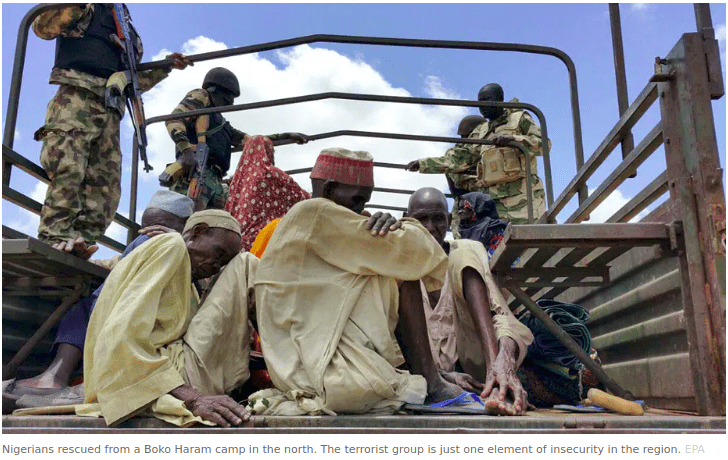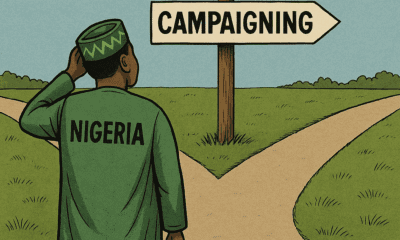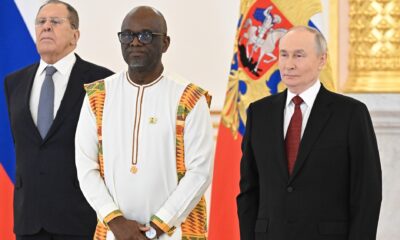Forgotten Dairies
Insecurity and Injustice: Major Threats to Nigeria’s Economic Growth -By Abdulazeez Toheeb Olawale
According to reports, Nigeria lost billions of naira in agricultural output due to farmer-herder clashes alone. The ripple effect is clear: reduced food production, inflation, unemployment, and hunger. In the South, oil theft and pipeline vandalism continue to deter energy investment. No sector is truly safe. Insecurity is no longer a regional problem,it’s a national economic emergency.

As Nigeria continues its journey toward economic reform and development, two major obstacles remain firmly in its path: insecurity and injustice. These twin challenges are not only costing lives and livelihoods,they are actively weakening the country’s economic foundation.
From insurgency in the Northeast to kidnappings in the Northwest and oil-related crimes in the South, insecurity has become a nationwide concern. Farmers abandon lands, companies shut down branches, and foreign investment is drying up in regions deemed unstable.
According to reports, Nigeria lost billions of naira in agricultural output due to farmer-herder clashes alone. The ripple effect is clear: reduced food production, inflation, unemployment, and hunger. In the South, oil theft and pipeline vandalism continue to deter energy investment. No sector is truly safe. Insecurity is no longer a regional problem,it’s a national economic emergency.
In Benue State, often referred to as the food basket of the nation, persistent attacks by armed groups have displaced thousands of farming families. Croplands lie fallow, and food insecurity has worsened. In Enugu, once considered a relatively safe part of the Southeast, gunmen recently stormed communities, leaving behind casualties, panic, and shattered livelihoods. These incidents are not isolated,they’re part of a growing trend that cuts across Nigeria.
Economists estimate that insecurity contributes to significant losses in agriculture, trade, and tourism annually. In the Middle Belt alone, food production has drastically dropped. In the oil-rich Niger Delta, pipeline vandalism and oil theft continue to discourage energy investment. Combined, these crises deepen poverty, reduce national output, and swell unemployment numbers.
Parallel to insecurity is a quieter but equally dangerous force: injustice. Corruption within public offices, law enforcement, and the legal system erodes public trust and creates a society where merit is replaced by manipulation. Many young Nigerians face systemic obstacles not because they lack ability,talent or drive, but because justice in Nigeria is often for sale,or simply unavailable.
In addition,access to business support, land ownership, education, or employment is frequently dictated by connections rather than competence. As a result, brilliant ideas are buried, innovations die in infancy, and the informal economy remains clogged with untapped potential. When people believe that fairness is absent, motivation dwindles,and so does productivity. Systemic injustice continues to paralyze enterprise. From biased law enforcement to nepotistic access to public resources, young Nigerians with dreams and ideas face an uphill battle. Corruption in governance and a lack of accountability in the judiciary worsen public frustration. The result is a society where opportunity is skewed and innovation suffocated.
Consider the story of Abubakar, a young entrepreneur from Sokoto who built a small tech hub to train local youth in digital skills. In his first year, he was robbed twice. Police reports led nowhere. When he applied for government grants, his file was ignored,others, less qualified but better connected, got the funding. Disheartened and broke, Abubakar shut down his hub. Another dream wasted. Another youth-driven initiative lost. Multiply this by thousands, and the national cost becomes immeasurable.
Nigeria stands at a critical point. Policies alone won’t fix the economy. What the country needs is peace with justice,a secure environment where every citizen is protected and every ambition is judged fairly. Until insecurity is tackled and injustice rooted out, true economic growth will remain a mirage.
If Nigeria must grow, peace and fairness must be prioritized. Economic reforms will have little effect unless citizens feel safe and believe the system is just. The call to action is clear: address insecurity and restore justice. Only then can Nigeria’s economy truly rise.
We must ask ourselves: How many more dreams must be buried before we realize that the real infrastructure of progress is not just roads and power lines, but safety and fairness for all?
God bless Nigeria!










